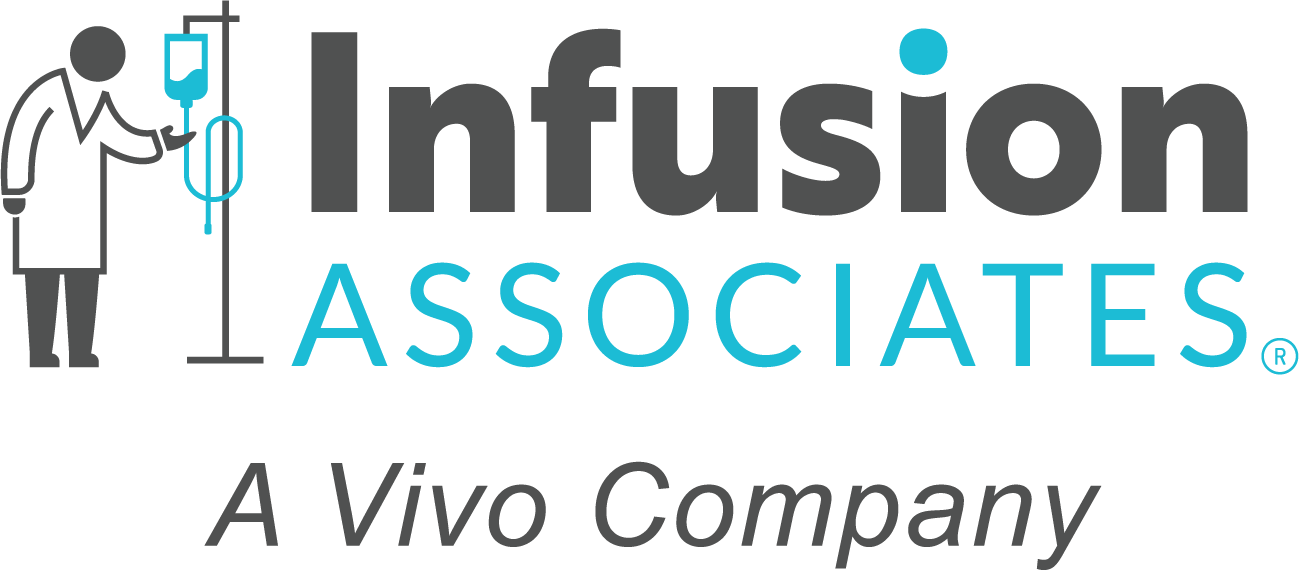Trying to keep up with personal and work responsibilities have made certain symptoms feel like a regular part of life — such as experiencing headaches, feeling exhausted, and dealing with back pain. But when these symptoms start showing up with frequency — or are accompanied by more worrisome discomforts — they are often signs that there may be something more serious going on with your health. Such is the case with paroxysmal nocturnal hemoglobinuria (PNH). But what, exactly, does the condition entail? And how can infusion therapy help?
What is paroxysmal nocturnal hemoglobinuria?
Paroxysmal nocturnal hemoglobinuria is a rare blood disease that destroys red blood cells, impairs blood marrow function, and increases the risk of thrombosis (blood clots). It’s the result of a mutation of a gene called PIG-A, which is located in the stem cells of bone marrow. The affected stem cells pass on the mutation to all cells that derive from it. The condition is life-threatening and can develop at any age.
Symptoms of Paroxysmal Nocturnal Hemoglobinuria
The symptoms of paroxysmal nocturnal hemoglobinuria can range from person to person. Some experience all of them, while others only notice a few of the signs. The most common ones include:
- Severe headaches
- Irregular heartbeat
- Fatigue
- Shortness of breath
- Flu-like symptoms
- Difficulties swallowing
- Difficulties controlling bleeding
- Bruising easily
- Abdominal pain
- Recurring infections
- Chronic back pain
- Bright red blood in the urine
Blood in the urine can also show up looking darker. It is also common for it to be very noticeable in the morning, while clearing up throughout the day. It may also be more noticeable if you’re experiencing an infection, taking certain medications, or undergoing a lot of stress.
Infusion Therapy for Paroxysmal Nocturnal Hemoglobinuria
While paroxysmal nocturnal hemoglobinuria can be life-threatening, undergoing adequate treatment can help patients obtain relief and prevent complications. While there are certain oral medications that can help some patients, a lot of them increase the risk of blood clots — making it a dangerous alternative. For these individuals — as well as for those for whom traditional treatment has failed to provide relief — infusion therapy can be a viable option.
PHN can be treated with Soliris (Eculizumab), an intravenous antibody that binds to the proteins that destroy red blood cells. This reduces the risk of blood clots and provides relief from symptoms.
Are there any side effects of infusion therapy for paroxysmal nocturnal hemoglobinuria?
As with any prescription medication, Soliris carries a risk of side effects. The most common ones include:
- Fever
- Sore throat
- Coughing
- Diarrhea
- Common colds
- Bruising
- Joint pain
- Pain or irritation at the site of infection
The best way to reduce the risk of uncomfortable side effects is to have a healthcare professional monitor your infusion to determine whether the dosage should be modified. They can also see if anything else from your medical history should be taken into account when administering treatment.
What to Expect from Infusion Therapy for Paroxysmal Nocturnal Hemoglobinuria
When you visit any of our Infusion Associates locations, you will notice upon first walking through our doors that we’ve made it a priority to make our treatment centers feel welcoming. You will be greeted by one of our medical providers, who will meet with you to answer all your questions and explain all the details of your treatment. Once this meeting concludes, you will be escorted to a treatment room. If you feel more comfortable in a private room, you can request one when scheduling your appointment.
When you visit any of our Infusion Associates locations, you will notice upon first walking through our doors that we’ve made it a priority to make our treatment centers feel welcoming. You will be greeted by one of our medical providers, who will meet with you to answer all your questions and explain all the details of your treatment. Once this meeting concludes, you will be escorted to a treatment room. If you feel more comfortable in a private room, you can request one when scheduling your appointment.
If you would like to refer a patient to us or want to inquire about the treatments we offer, you can contact us by calling 616-954-0600 or filling out this form.

